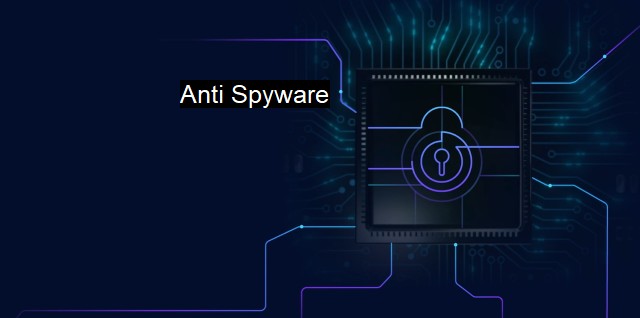What is Anti Spyware?
Defend Your Computer System from Malicious Spyware with Reliable Anti-Spyware Software: Identifying the Key Features to Look for in Effective Spyware Protection
In the cybersecurity and antivirus context, anti-spyware is a type of software program designed to prevent and detect unwanted spyware program infiltrations and to remove those programs if they are detected. Spyware is a category of programs that, when installed on a system, changes the settings, displays unwanted ads, tracks the user’s activities for unapproved purposes like threats and commercial intentions, and more severely, may lead to identity theft. By using anti-spyware tools, the user can proactively protect their system by eradication and blocking such spyware programs.Anti-spyware extracts and then impedes or destroys any spyware programs present on a computer. Most anti-spyware tools perform their functions without any user intervention. The program will scan your computer for potential threats, quarantine or remove detected threats, and then notify you of the performed action. Depending on the dynamics and the specific features of the anti-spyware software, it may perform real-time protection by providing continuous, protective monitoring of the system.
Anti-spyware is not the same as antivirus, but they come under the same protective umbrella. An antivirus is a software that shields your computer from viruses that can harm your system. They seek out, isolate, and then eradicate viruses before they can inflict any harm on your computer. While anti-spyware concentrates on the detection and elimination of spyware. since their formation, both the programs have evolved to cover various aspects of each other’s primary purpose.
Respected security software companies, including Norton, McAfee, Bytes, and Avast and others, provide comprehensive antivirus programs that contain anti-spyware capability. This gives you a sturdy defense protocol involving both the protection from viruses and spyware. The hardening advancement pace of cyber threats has led to the development of antivirus and anti-spyware technologies.
User habits also play a key role in preventing spyware installations. People should trust their sources of software, especially if they are offered for free. Opening email attachments without scanning them for potential threats and clicking on links within pop-up browser windows are common ways to invite unwanted spyware to your system. It is therefore crucial for the users to stay vigilant and practice mindful internet behavior alongside using reliable anti-spyware tools.
While choosing an anti-spyware program, it is necessary to ensure the credibility of the source. This is significant as seemingly beneficial tools can be cleverly manipulated spyware themselves. You must also look for options of real-time protection and frequent updates, as cyber threats are continually evolving. The onus is on the anti-spyware software to stay ahead of those developments.
Thus anti-spyware is an essential tool in the current digital age with cyber threats growing exponentially. Combined with cautious user habits and reliable antivirus softwares, anti-spyware tools can defend a user’s system against malicious intrusions. These protections help maintain the system's confidentiality, integrity, and availability and reduce the risk of unwanted complications like identity theft. Cybersecurity involves a comprehensive approach, and anti-spyware represents a vital component in your protective repertoire.

Anti Spyware FAQs
What is anti-spyware software?
Anti-spyware software is a type of cybersecurity tool designed to detect and remove spyware, adware, and other malicious programs that can compromise the security of your computer. This software typically scans your computer for suspicious activity and removes any threats that it finds.How does anti-spyware software protect my computer?
Anti-spyware software protects your computer by detecting and removing spyware, adware, and other malicious programs that can compromise your security. It works by scanning your computer for signs of suspicious activity, such as changes to your system settings or unusual network activity. Once it detects a threat, it will quarantine or delete the offending file to prevent it from causing damage.Is antivirus software the same as anti-spyware software?
No, antivirus software and anti-spyware software are not the same. While both types of software are designed to protect your computer from malware and other threats, they focus on different types of threats. Antivirus software is primarily designed to protect against viruses, while anti-spyware software is focused on detecting and removing spyware, adware, and other types of malicious programs.How can I choose the best anti-spyware software for my needs?
To choose the best anti-spyware software for your needs, you should consider factors such as the features offered, the price, and the reputation of the software provider. Look for software that offers advanced features such as real-time monitoring, automatic updates, and custom scan options. You should also look for software that has a good reputation and a proven track record of detecting and removing spyware. Finally, consider the price of the software, as well as any subscription fees or other costs associated with using it.| | A | | | B | | | C | | | D | | | E | | | F | | | G | | | H | | | I | | | J | | | K | | | L | | | M | |
| | N | | | O | | | P | | | Q | | | R | | | S | | | T | | | U | | | V | | | W | | | X | | | Y | | | Z | |
| | 1 | | | 2 | | | 3 | | | 4 | | | 7 | | | 8 | | |||||||